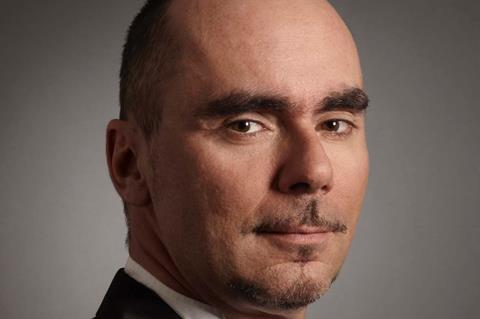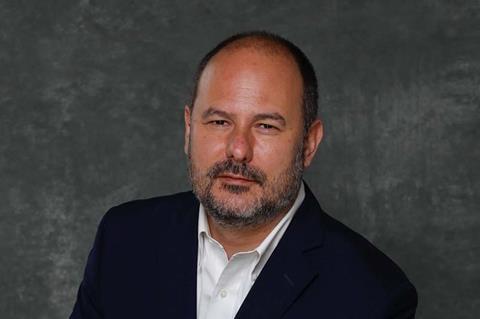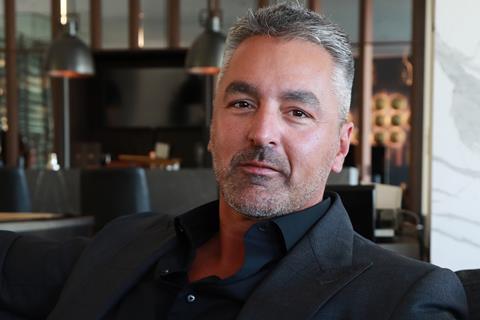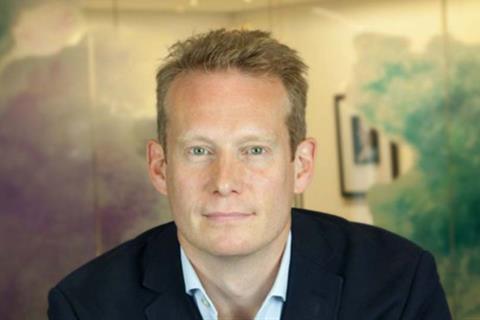Europe has given birth to some of the world’s leading production and distribution groups over the past two decades. In this special report, Screen International profiles the key groups and asks what the future holds for them.

From All3Media through to ZDF Studios, one of the defining features of the European TV market over the past 20 years is the emergence of major European production and distribution groups.
Scroll down for company profiles
The European industry has experienced a spate of consolidation in that period. Top UK groups such as All3Media and ITV Studios were born in the early 2000s; Netherlands-based Endemol also established itself as a pioneer ‘superindie’ at this time. French groups began rolling up production companies several years later; Banijay and Newen date from 2008, Federation in 2013 and Mediawan from 2015. Other big European groups such as Fremantle and Studiocanal trace their roots back much further but started buying production companies in earnest in the past decade. More recently, the industry has started to see Germany-based groups appear such as Leonine and Seven.One Studios.
Below, we have profiled each of the leading European groups, which we define as European headquartered and not part of the US studio system. They vary greatly in size, and some are broadcaster-owned while others are backed by private equity. But they all share common characteristics: each houses a collection of production companies and has a centralised distribution division to sell their IP around the world.
The growth of some of these groups has been nothing short of remarkable. Having acquired early super-indie groups Zodiak (in 2016) and Endemol Shine (in 2020), Banijay is now the world’s biggest independent production group, housing more than 130 labels and reporting a turnover in 2022 of more than $3.5bn (€3.2bn).
It is no accident that these groups have grown out of countries such as the UK and France, which offer a relatively advantageous regulatory environment for production companies. In the UK, the 2003 Communications Act curbed the market power of UK broadcasters and strengthened local producers. The Act paved the way for the Terms of Trade, allowing producers to retain and exploit their programme rights — suddenly making them very attractive to consolidators with global distribution arms.
European leaders
France, meanwhile, has long mandated that its broadcasters must support European and French-language works. More recently, France has become the frontrunner in regulating investments by global streamers, setting an investment obligation of 15-25% — most of which has to be in works of original French expression — and limiting how long they can hold exclusive rights.

Pascal Breton, the founder of Paris-based Federation Studios, notes that other European countries are following the French regulatory lead. Germany, he notes, is proposing a 20% investment obligation for streamers. “I would say it’s a game-changer,” says Breton. He points out that, by comparison, US independent producers “don’t really own their own IPs and don’t own their distribution.” Until now, countries such as Spain and Italy have tended to be target destinations for acquisitions, rather than throwing up their own European groups.
Overcoming challenges
Many European groups have grown despite — or maybe because of — the uncertainties of recent years, from Covid through to structural changes wrought by the streamers.
Screen International asked the leading groups to outline the challenges they have faced over the past year, and all list variations of the same: inflation and rising production costs; disruption caused by the US actors and writers’ strikes; reduced budgets, particularly at commercial broadcasters hit by ad revenue declines; the disruption caused by wars in Ukraine and Gaza; and a slowdown in spending by major streaming platforms. From Disney and Paramount to the UK’s Channel 4 and Germany’s ProSiebenSat.1, job cuts and retrenchment seem to be the order of the day at streamers and traditional broadcasters alike. Some local platforms, such as France’s Salto, have disappeared altogether, while pan-European streamers such as Viaplay have reverted to core markets.
Other production groups cite increased regulation in Europe, warning that placing aggressive demands on streamers and broadcasters could backfire. They flag the 2022 production hiatus in Denmark following a dispute with unions regarding rights payment to artists and content creators. (Some groups, however, are not so worried about regulation; one French company says international platforms, despite complaining, have adapted to France’s stringent regulations because investing in the country still creates value for them.)

However, it could be argued that many of these challenges have proved somewhat advantageous to the big groups. Fremantle’s group COO and continental Europe CEO Andrea Scrosati reckons that big groups “can navigate troubled waters more securely than smaller companies.” He says Fremantle is now a diversified “portfolio” company with “big shoulders” that operates across many genres, business models and territories. “If you are a small company with two productions and the cash comes in after 18 months instead of six months with interest rates where they are, that is tough. But for a company like ours that has so many productions, the cash flow is more consistent.”
Scrosati also argues that European groups are well suited to the international nature of TV and film production. “To finance projects and put together talent, you need a global network of connections — you cannot do it locally.” His pitch to producers thinking of joining Fremantle is that they will be part of a “community of talents” which gather in person twice a year and speak regularly. A group such as Fremantle also offers centralised services — such as a team in London whose job is to scout and secure literary IP, or another to handle business affairs that can support during negotiations with streamers or advise on accessing soft money. “The pitch is that you get to be part of an organisation that is there to help make your business grow, but also to have a creative and intellectual exchange,” says Scrosati.
Beta Group managing director Moritz von Kruedener acknowledges that the past years have been a period of fundamental change for the industry. In his view the biggest challenge for producers has been — and will be in the coming years — how to finance dramas that were traditionally funded out of one market. Because of increasing production costs, inflation and falling broadcaster budgets, these shows now need to patch together funds from different sources to get made.
Von Kruedener reckons this plays to the strengths of a pan-European group such as Beta, which “has the long years of experience” of co-financing and accessing soft money. “Streamers and broadcasters are open for cooperations like never before. Building international alliance on the creative and financial side is something we have been doing for many years,” says von Kruedener.
Cause for optimism?
What is particularly striking when talking to the big European groups is their sense of optimism, even in the face of multiple negative headlines about the state of the TV and film industry in 2024.
The likes of ITV Studios say the challenges are a “catalyst for change,” and that it plans to “embrace the new in 2024” — citing new ways of deal-making, distributing its catalogue and new technology for production. Its scripted and formats businesses are a particular focus. ITV Studios has set a goal of 400 hours of original drama series by 2026 and says it will focus on formats that return and travel, such as The Voice, Love Island and The Chase.
Banijay, meanwhile, lists a number of priorities for 2024, among them building more scale through organic growth and M&A. It also plans to diversify its business, building on recent moves into live events and branded entertainment. Other groups plan to grow their FAST channels business and direct-to-consumer offers.
Despite the current challenges, many of the big European groups are upbeat about the possibilities for the European market itself, noting how it has developed in recent years in terms of talent, IP and production capability. Many point out that a show produced in, say, Spain or Italy can now be a global show, and this was not the case 20 years ago. Fremantle’s Scrosati notes that top European talent no longer has to move to America if they want to work on a big movie. He points out that Fremantle companies are releasing movies produced in Europe starring the likes of Daniel Craig (Queer), Angelina Jolie (Maria) and Salma Hayek (Without Blood) in the second half of 2024.
“The infrastructure in Europe is super, super high-end and the talent pool is very strong,” says Scrosati. “This creates a big opportunity for companies who are willing to invest to make these kind of projects.”
Federation’s Breton reckons that his group will grow by 20% in 2024 and 35% in 2025. How is he so sure? Many of the shows earmarked for Federation’s 2024 earnings have already been completed, while the 2025 shows are already in prep for delivery that year. “For Federation, it is still a growing market. For drama producers in Europe, I would say it is still a growing market. It might not be growing as fast, but it is still growing. Netflix hasn’t stopped investing,” he says. (The streamer is thought to be spending roughly $17bn on content in 2024, steady with 2023 levels.) Breton adds that while Amazon and Disney might have reduced spend, they haven’t stopped. Despite cutbacks at Warner Bros Discovery, HBO’s Max is launching in France in 2024 and will be looking for content.
Others point to the high sums being invested by Apple TV+ in shows such as Constellation, which is produced by BBC Studios-backed Turbine Studios and reportedly has a higher budget than The Crown, and Slow Horses which is going into its fifth season through See-Saw Films. If you are an indie producer making low-budget factual TV and you have just had a show decommissioned by a broadcaster, you are likely in a tough place. But if you are a drama company that has picked up a big streamer commission, you are likely to have had your best year ever.

Meanwhile, many streamers are increasingly focused on licensing and acquisitions of shows. For European production and distribution groups whose primary aim is to hold on to and to exploit IP, this is good news.
Thomas Dey, founding partner of ACF Investment Bank, which has advised on deals such as the sale of 72 Films to Fremantle, says that although traditional broadcasters and networks are facing a more challenging environment, “the decay rate is much lower than people expected… and then you’ve got this huge influx of money from streaming platforms. I actually think more money is ending up in the hands of production than ever before.”
Future deal-making

The negativity about the sector has been overplayed, reckons Tom Manwaring, partner at Helion Partners, which has advised on many of the biggest M&A deals in the sector including the sales of The Forge to Banijay, Element Pictures to Fremantle and House Productions to BBC Studios. “The market is not universally down. Pockets of it are doing very well,” says Manwaring.
He predicts that M&A activity in the production sector will accelerate this year, despite the challenges in the wider economy, partly because the long-running sale process of All3Media came to an end last month with its agreed acquisition by RedBird IMI for $1.45bn (£1.15bn).
Historically, All3Media has been a significant buyer of production companies, but acquisitions were put on hold during its sale process (and in the latter stages of its ownership by cash-strapped Warner Bros Discovery). At the same time, other big companies circled All3Media, among them Banijay, ITV Studios, Mediawan, Sony and Peter Chernin’s The North Road Company. The bidding process inevitably occupied plenty of management time; having tabled bids, some of them will now turn their attention to other possible deals. “All of a sudden, you have all these companies [which have renewed interest in M&A] having had sign-off from their board of directors for close to £1bn [$1.3bn] of funding to buy a big production group,” says Manwaring.
What about high interest rates? Will this curb deal-making because it is more expensive to borrow money? Manwaring thinks not, pointing out that many groups will have borrowed at fixed rates over a long period. He also thinks that the worst of the interest rate rises has passed. “The reality is that when they might refinance in the next few years, interest rates will likely be materially lower,” he says.
In fact, this year has already seen a number of key deals, notably Fremantle’s purchase of European group Asacha Media Group and Singapore-based Beach House Productions, as well as the All3Media deal.
For Dey, the entry of investment group RedBird IMI into the market signifies the underlying health of the industry. “It is buying one of the premium assets in the marketplace. If there is anything out there that proves the health of the production market, it is a new private equity firm coming in to write a check in excess of £1bn.”
Additional reporting by Rebecca Leffler
In profile: the key European production and distribution groups
Click the links for profiles of each company
























No comments yet